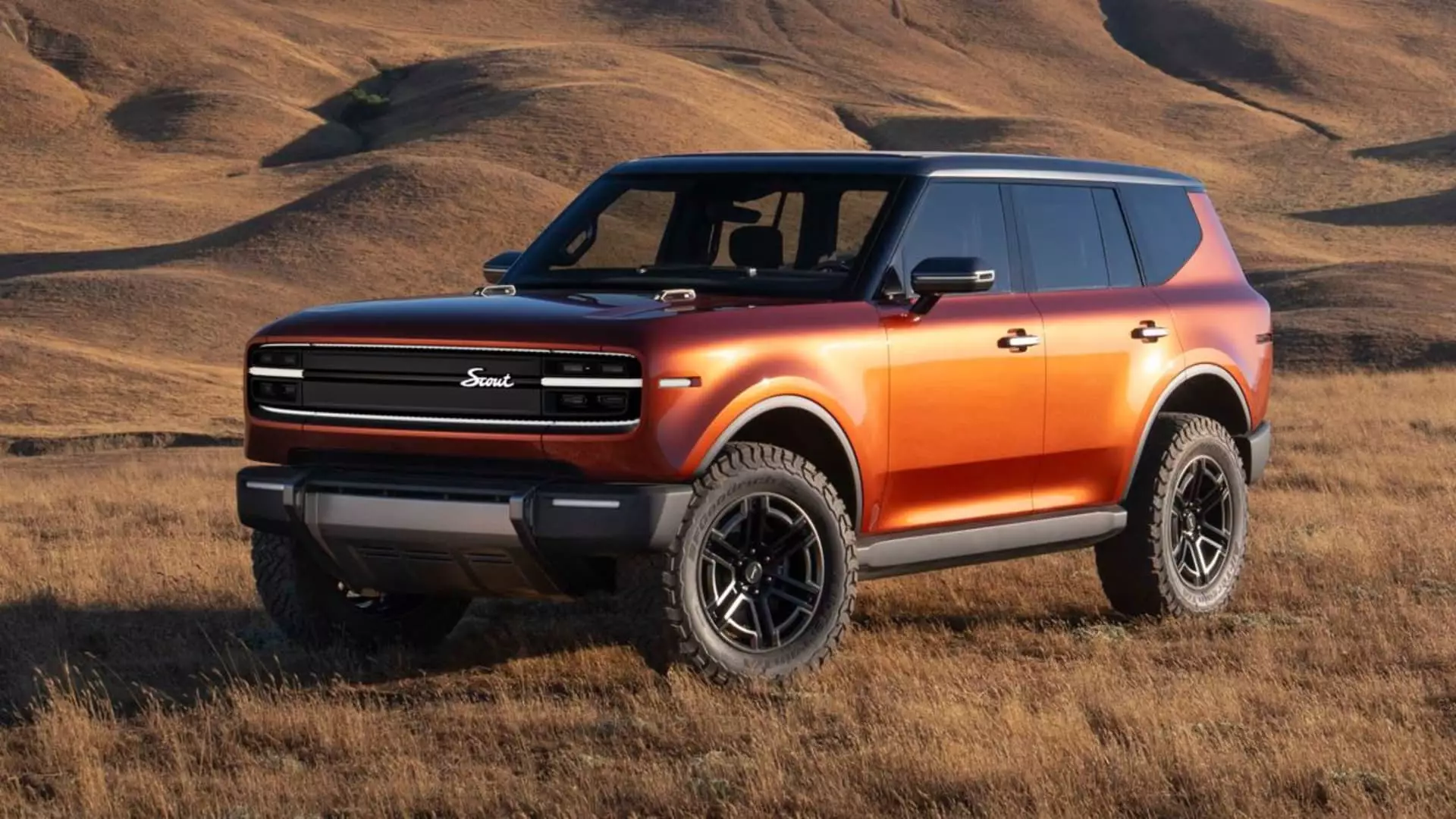In a significant reveal, Scout Motors, backed by automotive giant Volkswagen, has stepped into the electric vehicle (EV) arena by unveiling its inaugural models. The brand, a nod to a historic American name that thrived from 1961 to 1980, is making a bold return, driven by the need for innovation in the ever-evolving automotive market. Initially poised as an exclusive provider of EVs, Scout has recalibrated its strategy, opting to include Extended-Range Electric Vehicles (EREVs) in its lineup. This pivot represents a broader consideration of the current hurdles faced in the EV landscape, including sluggish consumer adoption and escalating costs.
Understanding EREVs: A Strategic Shift
Extended-Range Electric Vehicles (EREVs) exemplify a hybrid approach between traditional combustion engines and electric powertrains. Unlike regular plug-in hybrids, EREVs utilize an internal combustion engine specifically to generate electricity, effectively extending the vehicle’s range when the battery runs low. This duality allows Scout to appeal to a wider audience—evoking the electrification ethos while providing a ‘backup’ solution for range anxiety. Scott Keogh, Scout’s CEO, emphasizes the nimbleness of a startup, stating, “The pivot that we made a number of months ago into offering range extender definitely was a smart play.” With this addition, Scout seeks to mitigate risks associated with market volatility and fluctuating consumer interest in EVs.
Scout’s strategy isn’t merely a reactionary measure; it’s a concerted effort to capitalize on highly profitable segments within the U.S. automotive market. The company’s first two vehicles, a full-size pickup truck and a large SUV, will aim to capture approximately 40% of this lucrative market. Keogh expresses a bullish outlook, projecting operational profitability within the first year following the commencement of production—an ambitious endeavor, especially when contrasted against other EV startups like Rivian and Lucid, which continue to grapple with severe operational deficits.
The manufacturing footprint for Scout will be established in South Carolina with a $2 billion plant expected to yield a production capability of 200,000 vehicles. This decision underscores the company’s commitment to core American markets, aligning with consumer preferences for both performance and price.
In a bid to differentiate itself further, Scout plans to bypass traditional dealer networks, opting for a direct-to-consumer sales model. This strategy not only streamlines the purchasing process but also enhances customer engagement, positioning Scout as a modern player in an increasingly digital marketplace. Reservations have already been initiated for the forthcoming Traveler SUV and Terra pickup truck, with prices estimated to fall within the $50,000 to $60,000 bracket, inclusive of potential incentives.
Both models reflect a nod to the former Scout lineage while sporting a modern aesthetic—showcasing smoother lines and innovative interiors laden with technology. These vehicles signify more than just nostalgia; they represent a fusion of heritage and cutting-edge advancements in vehicular design, promising an experience that prioritizes both style and functionality.
The electric vehicle market, particularly within the truck and SUV segments, is rapidly expanding, but it is far from saturated. There has been an observable rise in vehicle sales; the electric truck market accounted for nearly 58,000 units sold in the first half of this year, a notable increase but still a modest share of the overall 7.9 million light-duty vehicles sold. Companies like GM and Ford have introduced their own electric trucks, yet the sales growth has been inconsistent, leading to substantial discounts on previously premium-priced models.
Scout’s entry into the market competes against well-established brands like Jeep, Ford, and Toyota. Their unique positioning hinges on providing competitive pricing and a brand identity that resonates particularly with off-road and adventure enthusiasts—traits synonymous with the classic Scout image.
As Scout Motors charts its new course in the automotive landscape, the emphasis is placed on balancing innovation with practicality. As the company looks to expand its offerings in the electric domain, with Keogh suggesting future considerations for scaling down to meet varying consumer needs, its flexible strategy positions it favorably for whatever market dynamics come next.
The journey ahead is fraught with challenges; however, with its robust business model and strategic product offerings, Scout intends to carve out a niche in the growing electric vehicle market, ultimately aiming for a future where they not only survive but thrive.

